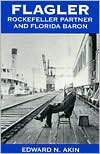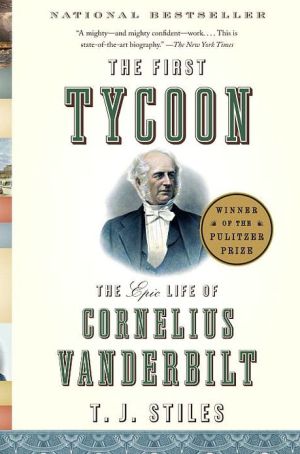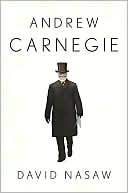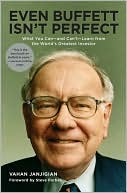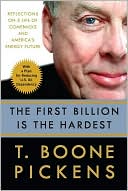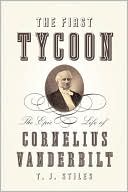Flagler: Rockefeller Partner and Florida Baron
From reviews of the first edition:\ "A succinct and informed account of [Flagler's] leadership in transforming Florida's economy."—American Historical Review\ \ "An important contribution to the understanding of Standard Oil's extended partnership and how the personal desire of Flagler led to the early development of Florida's Atlantic Coast."—The Historian\ \ Henry M. Flagler (1830-1913), the ambitious Gilded Age tycoon who designed and built much of Florida's fashionable east coast, rode to...
Search in google:
From reviews of the first edition: "A succinct and informed account of [Flagler's] leadership in transforming Florida's economy."—American Historical Review "An important contribution to the understanding of Standard Oil's extended partnership and how the personal desire of Flagler led to the early development of Florida's Atlantic Coast."—The Historian Henry M. Flagler (1830-1913), the ambitious Gilded Age tycoon who designed and built much of Florida's fashionable east coast, rode to success on the rails. As John D. Rockefeller's closest adviser in the 1870s, Flagler helped assemble the Standard Oil empire. In this thoroughly researched biography, Akin shows that Flagler understood early in his career that cheap freight rates determined industrial profits. Portraying Flagler as an aggressive entrepreneur, Akin documents his shrewd negotiations to obtain reduced rates, rebates, and drawbacks from the railroads, thus assuring Standard Oil's national domination over oil transportation costs. Flagler drove himself as hard as he drove a bargain, obsessed with the desire to create a monument to himself that he called "my domain." His legacy was no less than modern Florida. In 1885, at the age of fifty-five, he turned his attention away from Standard Oil and began construction of the Ponce de León luxury hotel in St. Augustine, the city where he had honeymooned with his second wife. Realizing he could never fill its rooms unless better transportation with the North was available, he embarked on the second railroad venture of his lifetime, creation of the Florida East Coast Railway. Flagler's resort empire eventually included The Breakers in Palm Beach and the Royal Palm in Miami; his Atlantic coast railroad extended all the way to Key West, an engineering achievement that was called the "eighth wonder of the world." By the beginning of the twentieth century, Flagler dominated not just the resort and railroad industries in Florida but steamship and agricultural operations, too. Florida politicians gave his projects preferential treatment, even changing the state's divorce law so he could marry for a third time. Woven into this biography are details about Flagler's family, personality, three marriages, alienation from his only son, and devotion to the Presbyterian church—copy that fueled society gossip columns from New York to Palm Beach for decades. Edward N. Akin, author of Mississippi: An Illustrated History and other works on southern history, taught at Mississippi College in Clinton. His biography of Henry Flagler won the 1985 Phi Alpha Theta manuscript prize. Publishers Weekly Akin, who teaches at Mississippi College, here presents a study of Henry M. Flager (1830-1913), an entrepreneur who had two significant careers. He was associated with John D. Rockefeller during the formation of Standard Oil; Flagler was instrumental in securing preferential railroad rates important in building Standard's near-monopoly. Akin is objective in dealing with this period, raising the question of what untrammeled competition might have meant to the oil industry. In the 1880s, Flagler became interested in Florida and over the next decades was responsible for developing St. Augustine and turning Palm Beach, Miami and Key West into tourist resorts. Scholarly and plodding, this portrait is not likely to interest general readers. Illustrations not seen by PW. (January)
\ Publishers Weekly - Publisher's Weekly\ Akin, who teaches at Mississippi College, here presents a study of Henry M. Flager (1830-1913), an entrepreneur who had two significant careers. He was associated with John D. Rockefeller during the formation of Standard Oil; Flagler was instrumental in securing preferential railroad rates important in building Standard's near-monopoly. Akin is objective in dealing with this period, raising the question of what untrammeled competition might have meant to the oil industry. In the 1880s, Flagler became interested in Florida and over the next decades was responsible for developing St. Augustine and turning Palm Beach, Miami and Key West into tourist resorts. Scholarly and plodding, this portrait is not likely to interest general readers. Illustrations not seen by PW. (January)\ \ \ \ \ Library JournalAfter two similar biographies, David L. Chandler's Henry Flagler LJ 8/86 and Sidney Walter Martin's Florida's Flagler 1949, not much more can be said about Flagler the man. Akin instead concentrates on Flagler's business practices, focusing not only on his involvement with Standard Oil but on the company itself. Akin reveals that a desire for immortality rather than greed motivated Flagler to open up Florida's east coast. However, Akin does not fully explore and develop the reasons for Flagler's change from the Standard Oil barracuda to Florida's paternalistic ``Uncle Henry.'' A welcome addition to late-19th-century business history; recommended for academic libraries. Susan Hamburger, Florida State Univ. Lib., Tallahassee\ \
